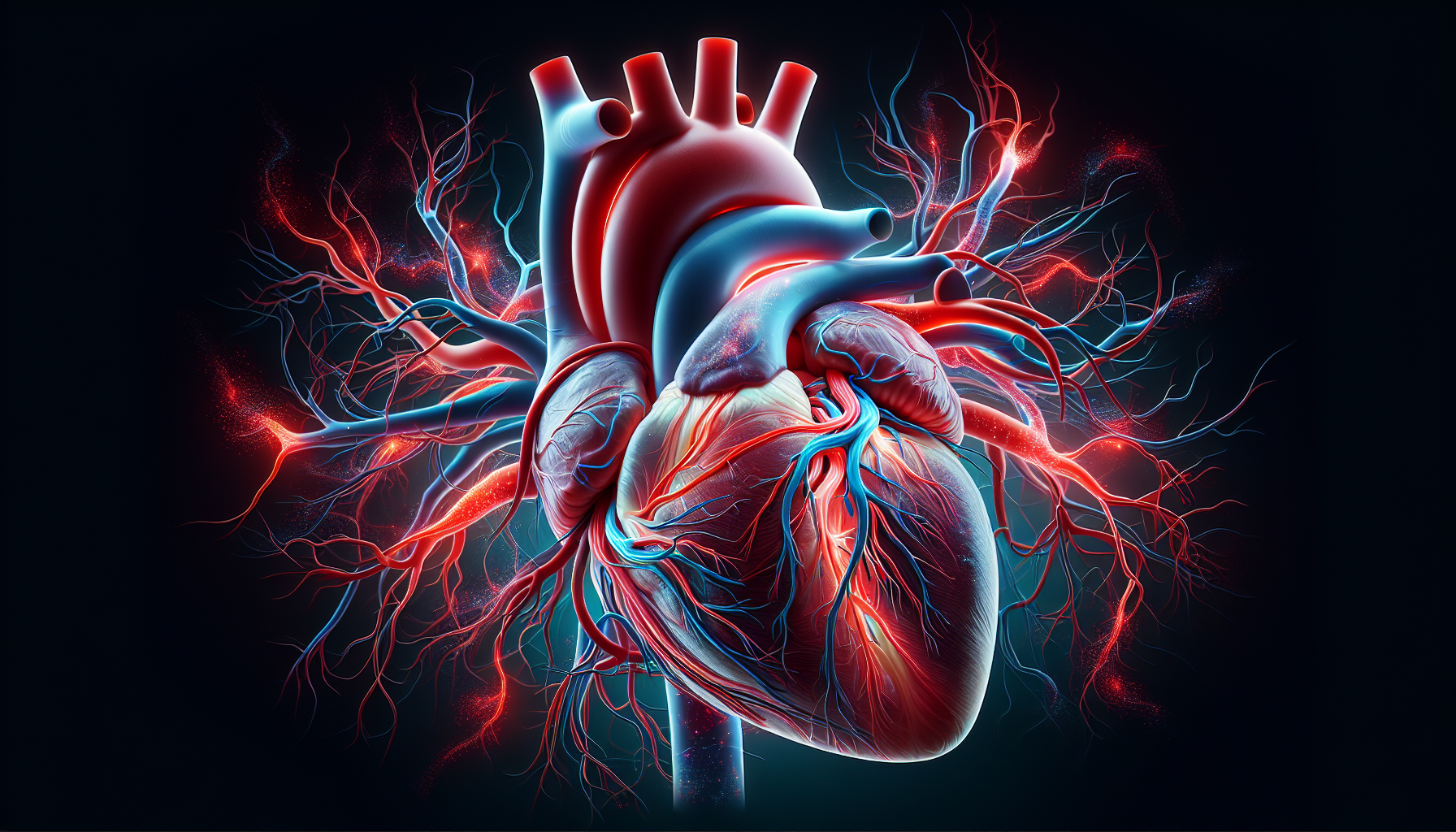Vascular inflammation is a critical but often overlooked component of heart health. This condition, marked by the inflammation of blood vessels, can be a silent precursor to a range of cardiovascular diseases, including atherosclerosis, heart attack, and stroke. Understanding the mechanisms behind vascular inflammation, its causes, and the steps we can take to minimize its impact is crucial for maintaining a healthy heart.
The Role of Inflammation in Cardiovascular Health
Inflammation is the body’s natural response to injury or infection, serving as a protective attempt by the organism to remove the injurious stimuli as well as initiate the healing process. However, when inflammation becomes chronic, it can cause more harm than good, especially within the vascular system. Chronic vascular inflammation can lead to the development of plaque in the arteries, a condition known as atherosclerosis, which is a major risk factor for cardiovascular disease.
For a deeper understanding of cardiovascular health and its maintenance, you should explore the extensive resources provided on Cardiovascular Health.
Causes of Vascular Inflammation
Several factors can contribute to the onset of vascular inflammation. These include:
- Poor Diet: High intake of processed foods, trans fats, and sugar can increase inflammation.
- Smoking: Tobacco smoke contains numerous chemicals that can damage blood vessels, leading to inflammation.
- Obesity: Excess body fat, particularly around the abdomen, is associated with higher levels of inflammatory substances.
- Sedentary Lifestyle: Lack of physical activity can lead to poor circulation and higher inflammation levels.
- Chronic Stress: Prolonged stress can lead to an increase in inflammation through the production of stress hormones like cortisol.
- Underlying Health Conditions: Diseases such as diabetes, hypertension, and metabolic syndrome can cause inflammation.
In the quest to manage and understand the impact of these factors, the article Combating Metabolic Syndrome for Cardiovascular Health offers valuable insights.
Detecting and Measuring Vascular Inflammation
Detecting vascular inflammation involves various biomarkers and imaging tests. Blood tests can measure levels of C-reactive protein (CRP), a substance produced by the liver in response to inflammation. Elevated CRP levels can indicate inflammation in the body, including the blood vessels. Imaging tests, such as an angiogram, can also visualize the condition of the blood vessels and the extent of any inflammation or plaque accumulation.
For additional resources on the intersection of technology and heart health, consider reading Technology and Cardiovascular Health: Tracking and Tools.
Preventing and Reducing Vascular Inflammation
Prevention and reduction of vascular inflammation are key to maintaining heart health. Strategies include:
- Adopting a Heart-Healthy Diet: Consuming a diet rich in fruits, vegetables, whole grains, and omega-3 fatty acids can reduce inflammation.
- Regular Exercise: Physical activity helps improve circulation and reduce inflammation.
- Maintaining a Healthy Weight: Weight loss can decrease the level of inflammatory substances in the body.
- Quitting Smoking: Giving up smoking can significantly reduce vascular inflammation.
- Managing Stress: Techniques such as meditation, yoga, and deep breathing can lower stress-induced inflammation.
- Regular Health Check-ups: Monitoring blood pressure, blood sugar, and cholesterol levels can help manage conditions that may lead to inflammation.
For those interested in integrating beneficial physical activity into their routine, the benefits of yoga are well-documented in the article The Benefits of Yoga for Cardiovascular Health.
Treatments for Vascular Inflammation
When vascular inflammation is present, treatment options may include:
- Medications: Anti-inflammatory drugs, statins, and other medications can be prescribed to reduce inflammation and manage risk factors.
- Medical Procedures: In cases where plaque has significantly built up, procedures like angioplasty or bypass surgery may be necessary.
In addition to lifestyle changes and medical interventions, it’s important to consult healthcare professionals who can provide personalized advice and treatment plans.
The Importance of Holistic Health Approaches
Since heart health is interconnected with other aspects of wellness, adopting a holistic approach to health is beneficial. Managing other health aspects like Bone Health, Brain Health, and Digestive Health can contribute to a stronger cardiovascular system.
External High-Quality Resources
For those seeking to delve further into the specifics of vascular inflammation and heart health, several niche resources provide valuable information:
- The American Heart Association offers a detailed exploration of the causes and effects of vascular inflammation on heart health. Visit their website for comprehensive educational materials.
- The National Heart, Lung, and Blood Institute provides insights into the research being conducted on inflammation and its role in heart disease.
- The British Heart Foundation has resources that discuss the latest findings on how lifestyle changes can mitigate the risks associated with vascular inflammation.
Conclusion
Understanding vascular inflammation is a vital aspect of maintaining heart health. By recognizing the causes, detecting the symptoms, and implementing preventative and treatment strategies, individuals can significantly reduce the risk of cardiovascular diseases. Integrating a holistic health approach and staying informed through credible resources can empower individuals to take control of their heart health. Remember, a healthy heart is not just about the absence of disease; it’s about creating a lifestyle that supports the body’s natural ability to regulate and maintain cardiovascular wellness.



